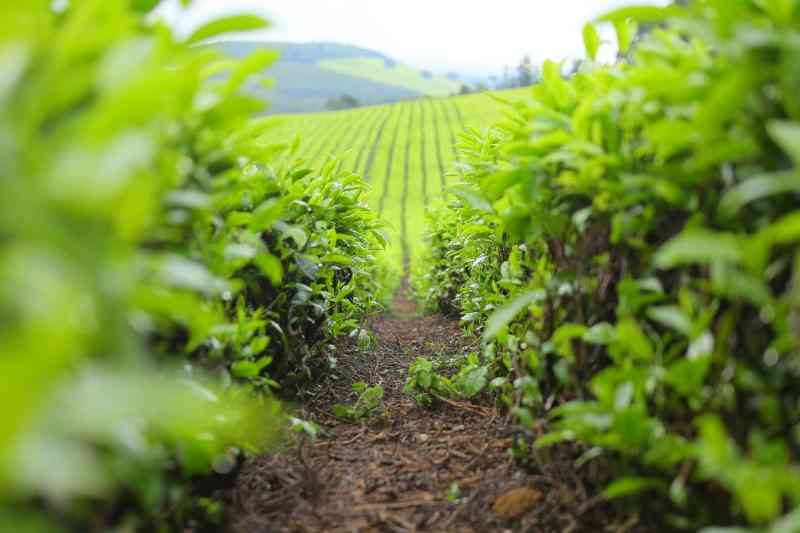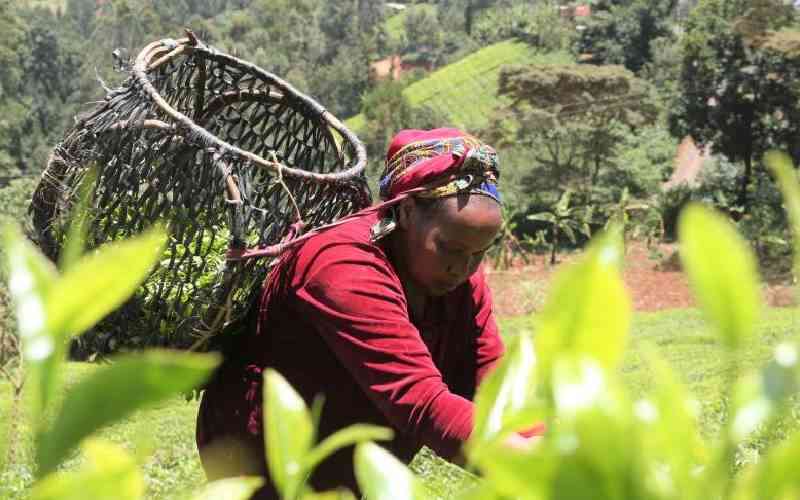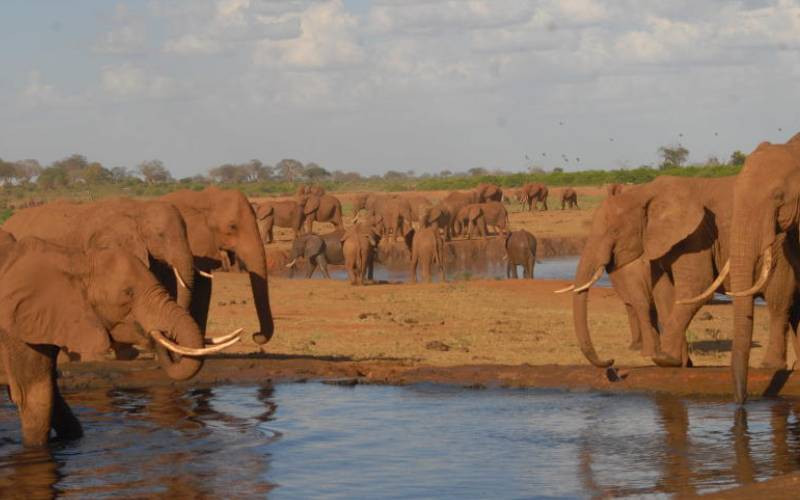Nairobi; Kenya: Kenya’s tea industry, the country’s largest foreign-exchange earner, is being stymied by tax levies and a failure to develop foreign markets, the East African Tea Trade Association said.
The average auction price of Kenyan tea has declined 40 per cent this year amid a steep rise in production and stagnant growth in new markets, the Mombasa-based association said in a report e-mailed by its office that was presented to Kenya’s Senate last week. Value-added tax has reduced domestic consumption, while a levy on tea imports and exports that’s equal to 1 per cent of customs value has imposed extra expenses and bureaucracy, it said.
Kenya, the world’s largest exporter of black tea, generated $1.3 billion from tea sales last year, according to the Tea Board of Kenya. The nation’s six biggest export markets, including Egypt, Afghanistan and Pakistan, account for about 77 per cent of all tea shipments, the association said. That compares with 42 per cent for China and 57 per cent for Sri Lanka, it said.
Barter trade
International economic sanctions on tea-consuming nations such as Sudan and Iran prevent potential sales, the group said. It recommended that Kenya’s central bank “provide an avenue” for trade with Iran, “either through barter trade” or other instruments.
Removing Value Added Tax (VAT) on domestic tea would increase local consumption, which has dwindled to about 5 per cent of total exports, and increase sales to Kenyan exporters by producers, the group said. The tea sector has been highly charged in the past few months, with farmers up in arms over low bonus payments received this year.
They say they could have been shortchanged. However, the Kenya Tea Development Agency (KTDA), a company owned by about 600,000 small-scale farmers, says the low payment is due to low market prices of tea blamed on oversupply in the international market.
There has been a global glut that has hurt tea prices. Tea prices have fallen in the three top exporter countries — Kenya, India and Sri Lanka — as tea supply surpasses world consumption.
The decline in tea prices, to an average of $2.41 per kg at the Mombasa auction, was noted from May last year as a result of high production of tea. By April, production had surpassed consumption by 66 million kilos. Current prices are averaging at $2.34 per kg, compared to average prices of $3.18 per kg in 2012.
Tea industry players met recently at a national conference convened by Senate Standing Committee on Agriculture, Livestock and Fisheries and agreed that the sector, which has been a key foreign exchange earner – topping Sh114 billion in export revenue last year, needs re-engineering to overcome current challenges.
 The Standard Group Plc is a
multi-media organization with investments in media platforms spanning newspaper
print operations, television, radio broadcasting, digital and online services. The
Standard Group is recognized as a leading multi-media house in Kenya with a key
influence in matters of national and international interest.
The Standard Group Plc is a
multi-media organization with investments in media platforms spanning newspaper
print operations, television, radio broadcasting, digital and online services. The
Standard Group is recognized as a leading multi-media house in Kenya with a key
influence in matters of national and international interest.
 The Standard Group Plc is a
multi-media organization with investments in media platforms spanning newspaper
print operations, television, radio broadcasting, digital and online services. The
Standard Group is recognized as a leading multi-media house in Kenya with a key
influence in matters of national and international interest.
The Standard Group Plc is a
multi-media organization with investments in media platforms spanning newspaper
print operations, television, radio broadcasting, digital and online services. The
Standard Group is recognized as a leading multi-media house in Kenya with a key
influence in matters of national and international interest.







